 资源简介
资源简介
(共24张PPT)
Unit 3 语法精讲
直接引语 和 间接引语
The reporter asked, “How can we save polar bears from extinction ”
The reporter asked how we could save polar bears from extinction.
Direct Speech
Indirect Speech
“Let’s work together to stop climate change,” the expert said.
The expert advised us to work together to stop climate change.
概念
直接引述别人的原话,叫____________;
直接引语
用自己的话转述别人的话,叫 _________。
间接引语
直接引语通常都用_________括起来,
引号“ ”
间接引语在多数情况下都构成一个 ________。
宾语从句
直接引语变为间接引语时,从句中的人称、时态、指示代词、时间状语、地点状语和动词、句型等一般要作相应的变化。
人称变化
01
人称变化
(1)“I don’t know that,” he said.
He said that he didn’t know that.
(2)She said to me,”You can go with me.”
She said to me that I could go with her.
(3)She said to me,”He will go home.”
She said to me that he would go home.
人称变化规律总结
一随主
二随宾
三不变
Exercise:
(1)”I will come and see you again this evening,Tom,”
she said.
→ She told Tom that would go and see ______
again that evening.
(2)He said to me,“You are wrong.”
→ He told me that was wrong.
she
I
him
Exercise:
(3)”Are you a soldier ” he asked.
→ He asked if/whether _____ was a soldier.
(4)He asked,“Where are you going to get off,John ”
→ He asked John where ______ was going to get off.
I
he
时态变化
02
时态变化
直接引语 间接引语
一般现在时 一般过去时
一般将来时 过去将来时
现在进行时 过去进行时
现在完成时 过去完成时
一般过去时 过去完成时
Exercise:
(1)The teacher said,“You are doing OK.”
→ The teacher said that _____________ doing OK.
(2)He said,“I have written a novel.”
→He said that ______________________ a novel.
(3)He said,”She will come here to have a long holiday.”
→ He said that _______________ go there to have a long
holiday.
we were
he had written
she would
Exercise:
(4)The teacher said,”Where there is a will,there is a
way.”
→ The teacher said that where there ______ a will,
there _____ a way.
(5)Jane said,”Mary,where are you going when I
met you on the bus ”
→Jane asked Mary where __________________ when she
met her on the bus.
is
she was going
is
1. 人称的变化
一随主、二随宾、第三人称不更新。
一随主:直接引语中第一人称变为与主句的主语相一致的人称。
二随宾:直接引语中第二人称变为和间接宾语(即听话人)相一致的人称。
第三人称不更新:直接引语中第三人称变为间接宾语时,人称不变。
“I don’t know that,” he said.
He said that he didn’t know that.
He said, “I like it very much.”
He said that he liked it very much.
He said to me, “I’ve left my book in your room.
He told me that he had left his book in my room.
I said to her, “I have done my best.”
I told her that I had done my best.
人称变化
句型转换
(1)“I will come and see you again this evening, Tom,”she said.
→ She told Tom that would go and see again that evening.
(2)He said to me,“You are wrong.”
→ He told me that was wrong.
(3)“Are you a soldier ” he asked.
→ He asked if/whether was a soldier.
(4)He asked,“Where are you going to get off, John ”
→ He asked John where was going to get off.
she
I
him
I
he
2. 时态的变化
直接引语变成间接引语时,如果主句是过去的某种时态,则大多数情况下间接引语的时态应相应向前推一个时态。
直接引语 间接引语
一般现在时 一般过去时
一般将来时 过去将来时
现在进行时 过去进行时
现在完成时 过去完成时
过去进行时 过去进行时(不变)
一般过去时 过去完成时
“I don’t know that,” he said.
He said that he didn’t know that.
1. 如果直接引语表述的是客观真理,变成间接引语时,时态不变。
The teacher said to us, “Light runs much faster than sound.”
→The teacher told us light runs much faster than sound.
注意
The teacher said, “World War II ended in 1945.”
→ The teacher said that World War II ended in 1945.
2. 如果直接引语中有明确的表示过去时间的状语,变成间接引语时,时态不变。
注意
My father said to me, “ The house was completely transformed in 2017.”
My father told me that the house was completely transformed in 2017.
语序变化
(1)“I don’t know that,” he said.
He said that he didn’t know that.
陈述句用that引导
(2)Mother asked me, “Have you finished your
homework ”
Mother asked me whether/if I had finished my homework.
一般疑问句用whether/ if 引导
语序变化
(3)“How many sleeping pills have you taken ”
asked the nurse.
The nurse asked me how many sleeping pills I had taken.
特殊疑问句用原特殊疑问词引导
Exercise:
(1)He said,“I’ve left my book in your room.”
→He told me _______ he ____________ his book in my room.
(2)She said,“Do you like watching the advertisements on TV ”
→She asked me ______________ I ________ watching the advertisements on TV.
(3)“Where did you find the ads for jobs abroad ”Bill asked.
→ Bill asked _____________________ the ads for jobs abroad.
had left
that
where I had found
that
whether
句型转换
(1)He said,“I’ve left my book in your room.”
→He told me he his book in my room.
(2)She said,“Do you like watching the advertisements on TV ”
→She asked me I watching the advertisements on TV.
(3)“Where did you find the ads for jobs abroad ” Bill asked.
→ Bill asked the ads for jobs abroad.
that
whether
where I had found
liked
had left
句型转换
(4)“What are you doing now ” Mom asked.
→Mom asked then.
(5)He said,“Please come here again tomorrow.”
→He again .
(6)He said,“Don’t make so much noise,boys.”
→ He told the boys so much noise.
what I was doing
asked me to go there
not to make
the next day
Thank You!
展开更多......
收起↑
 资源预览
资源预览
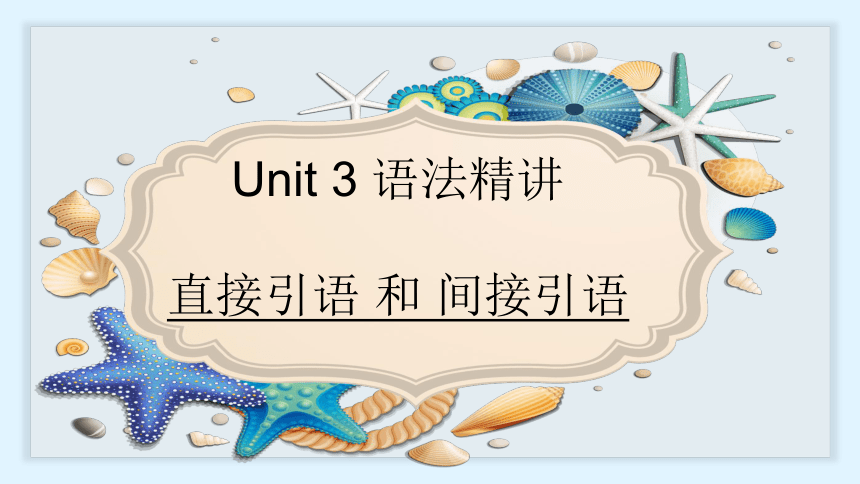
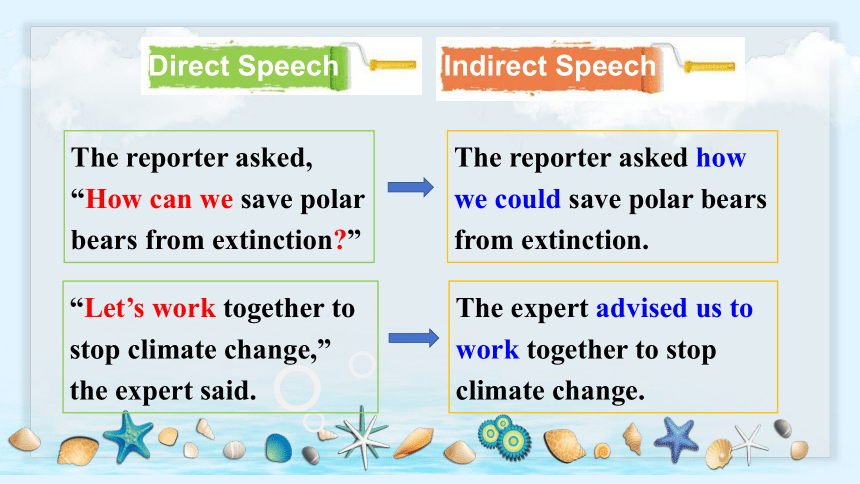
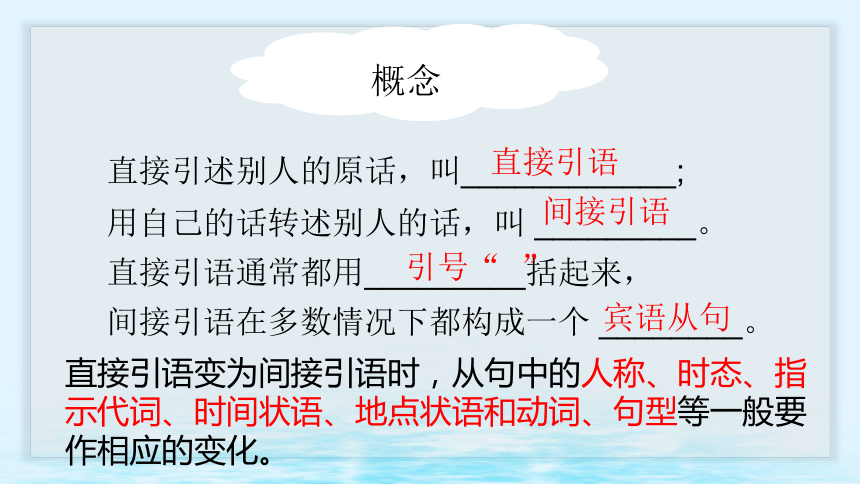


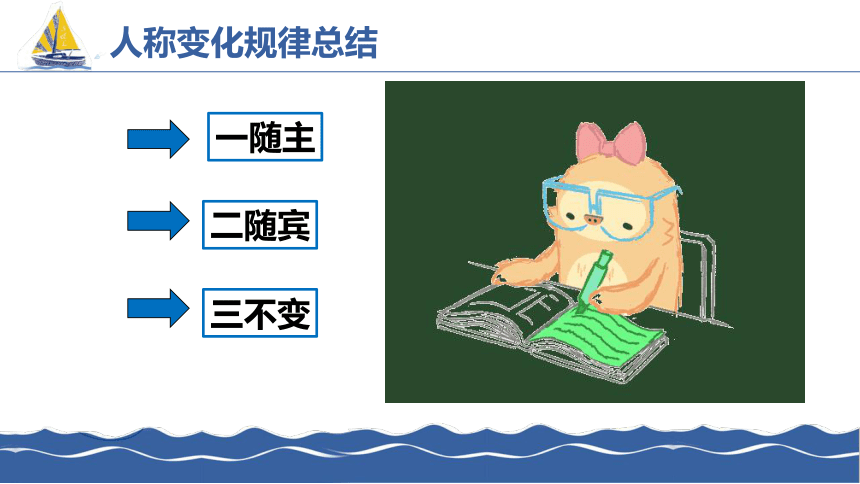
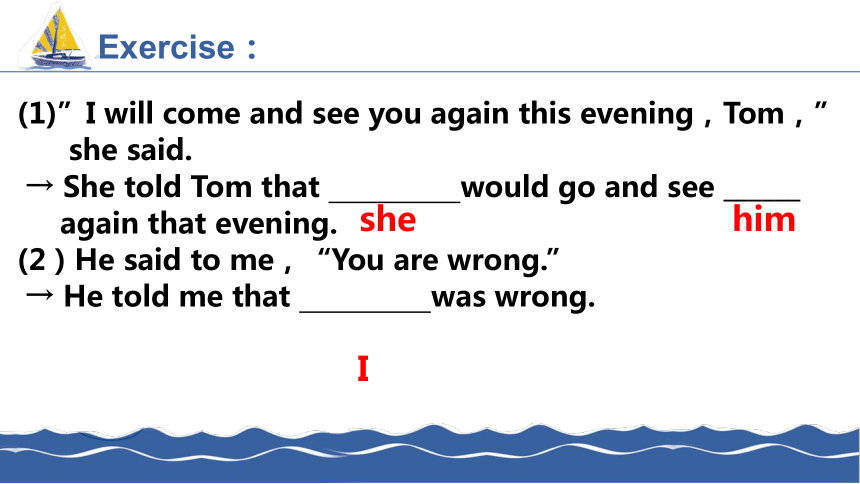

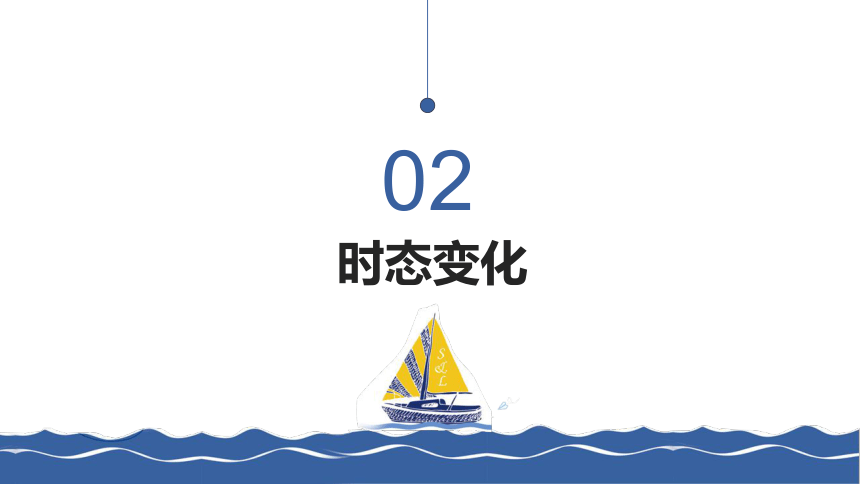
 资源预览
资源预览








